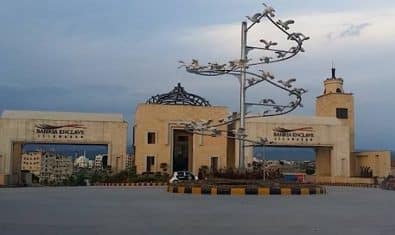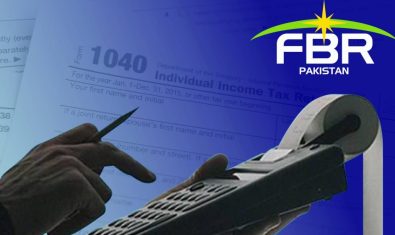The government has decided to establish a high-capacity data warehouse to support big data analysis and the integration of databases of taxpayers.
A report prepared by the Federal Board of Revenue (FBR) revealed that the FBR is aiming to upgrade its Information Technology (IT) systems, including a high-capacity data warehouse to support big data analysis and integration of databases along with the replacement of end-of-life equipment of the FBR’s data centers.
According to the report, FBR needs to modernize its Information and Computer Technology Infrastructure to execute its reform initiatives by utilizing modern technologies in its data centers.
The report revealed that the FBR is committed to implementing its ICT vision to become a modern, fully automated, and data-driven organization, having integrated systems that are not only internally connected but are connected nationwide with all the organizations (public and private) that can help identify tax frauds.
FBR has 3 main data-related centers in Pakistan including a data center in FBR headquarters, PRAL office in Islamabad, and Disaster Recovery office in Karachi. Besides data centers, ICT equipment will be provided to more than 35 regional offices of FBR across Pakistan.
Regional offices comprise regional taxation offices and Pakistan Customs. Currently, the offices are in the phase of identifying the ICT equipment needs while continuing the use of existing systems. During stakeholder consultations, it was pointed out that dismantled equipment at such offices will be reused at sub-offices. Therefore, the quantity of E-waste will be very low and will be estimated at the time of dismantling.
FBR’s main IT systems—the Inland Revenue Information System for income tax, the Sales Tax Realtime Invoice Verification (STRIVE) system for General Sales Tax (GST), and the Web Based One Custom (WeBOC) system for Customs—have automated some business processes, such as filing of tax returns and goods declarations (GDs). However, these systems do not share data and lack important functionalities such as tracking tax arrears or a transit module (WeBOC).
FBR, therefore, needs the ICT infrastructure and technical skills to integrate and analyze big data with adequate data security. ICT investments in simplified and automated business processes will generate efficiency gains by enabling paperless administration, real-time communication with FBR field offices, and e-services for taxpayers.
The project will support the implementation of the FBR’s long-term transformation roadmap. The solutions offered by the project are based on the ‘low rate-broad base’ principle, whereby a sustainable increase in revenues is achieved by expanding the tax base and increasing compliance, rather than introducing new taxes or raising tax rates.
The project focuses on the implementation of a simplified and strengthened tax and customs administration. Project interventions will equip the FBR with the needed ICT tools and technical skills to make effective use of taxpayer information, with big data techniques and modern risk-based tools for more efficient, targeted compliance control. The project also includes ICT tools and electronic scanning equipment for the FBR’s initiatives for taxpayer and trade facilitation.





















